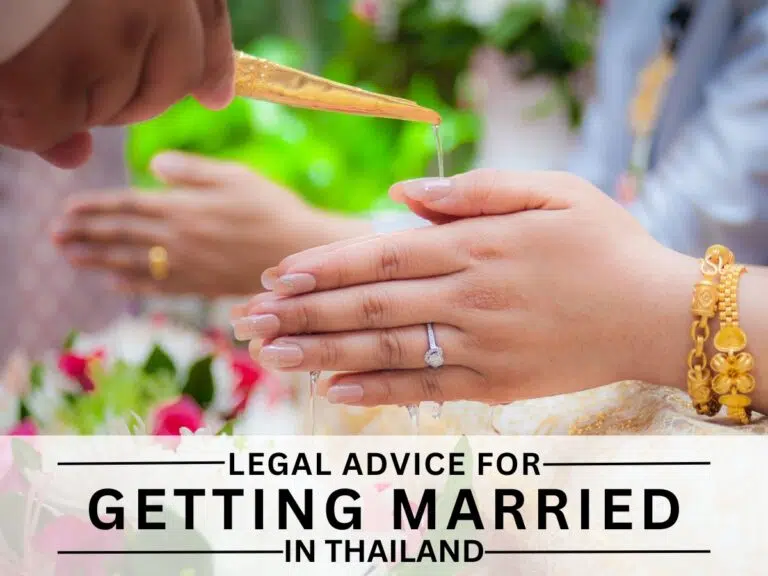Getting married in Thailand involves cultural as well as legal concerns. While the points below give general legal advice in getting married in Thailand, it is essential to seek legal advice from local authorities or a qualified Thai lawyer who can help you familiarize yourself with Thai marriage laws.
Legal Requirements and Documentations
Make sure you understand and follow Thailand’s legal marriage requirements. Obtaining an Affirmation of Freedom to Marry from your respective embassy in Thailand, translating it into Thai, and registering it with Thai officials are all part of this process. Each embassy may have specific requirements. Therefore, it is important to contact your embassy ahead of time. Prepare all relevant documents, such as passports, birth certificates, and, if needed, divorce or death certificates. These documents must be translated into Thai and authenticated by the Ministry of Foreign Affairs.
Visa and Immigration Requirements
If you’re a foreign national marrying a Thai national, it’s crucial to consider visa and immigration requirements. It’s advisable to apply for a single-entry tourist visa from a Thai embassy or consulate before traveling to Thailand. This visa allows up to 60 days of stay, with the option to extend it for an additional 30 days. If you want to stay in Thailand for a long period of time after marriage, you may need to report to Thai immigration to extend your stay or convert your visa to a longer-term visa based on marriage.
Engagement and Dowry
Marriage dowry (Sin Sod) is still an integral part of modern Thai marriage customs. Traditionally, the groom will be expected to pay a dowry to the family as a gesture of goodwill and to express gratitude for raising and caring for their daughter. However, participation in the Sin Sod tradition is not a legal requirement and can be voluntary, and couples may choose not to follow or negotiate an amount.
Prenuptial Agreement
You may want to consider a prenuptial agreement before getting married. A prenuptial agreement is a legal document that outlines the rights and obligations of both parties to a marriage, including property ownership, financial management, and property rights in case of termination. While most couples may not openly discuss these matters, these agreements are common and essential for those with real assets, stocks, inheritances, or collectibles they want to keep as separate property. They can be drafted before marriage and can be a crucial document in ensuring a smooth and respectful marriage.
Property and Finances
In Thailand, marital property refers to all assets acquired by a couple during their marriage, including shelter, transportation, household, education, recreational, and social purposes. Non-marital property, which belonged to one spouse before marriage, is considered non-marital property (Sin Suan Tua). Increased non-marital property value during marriage may be considered marital property. Joint marital obligations include debts incurred during the marriage. In the event of divorce, the property is divided equally between spouses. However, the Civil and Commercial Code allows for a different property management system through a prenuptial agreement.








